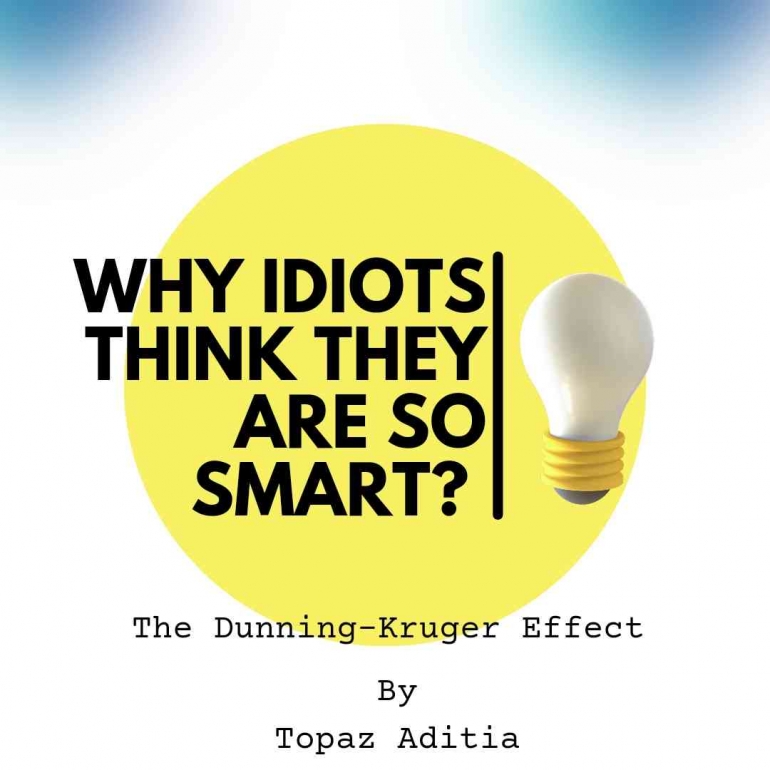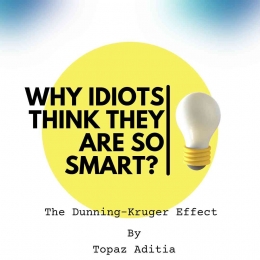Do you often find yourself getting into arguments over stupid stuff like why the earth cannot possibly be flat?
Or, whether the moon is genuinely made of cheese?
and in your own mind, you are almost 100 percent certain that the earth is obliquely spherical?
and the moon is unfortunately not made of delicious melty cheddar but, boring old rock?
Yet, incredibly you end up losing these arguments against or to the moronic people you know you should have won. Even after you provided them with countless irrefutable evidence. Yes, no matter what you say you, somehow, fail to change their mind or remotely shake their ostentatious self-confidence in their air earnest views.
Stupid Yet, Stubborn
Why is it so difficult to argue with stupid people? Why do they fail to listen to empirical evidence and instead, favor the wisdom of those noisy members who re-shared invalid news on Whatsapp groups? and why do they often think themselves far more intelligent than their words?
Neuroscientists think there are very real and fascinating reasons and explanations for this frustrating phenomenon. But, before we talked about those we must first establish whether our suspicions are true. Do people think they're smarter than they are?.
The Case Of McArthur Wheeler
Over the past 20 years two social psychologists have been attempting to answer this question, David Dunning and Justin Kruger. David Dunning was inspired to begin this research after reading a feature in the 1996 World Almanac about a Pittsburgh bank robber named McArthur Wheeler, who held up a bank at gunpoint in broad daylight without a mask. But strangely, his face was covered in lemon juice. When the police arrested him later at his home he said, "But, I wore the juice" he explained. How since lemon juices sometimes used as invisible ink and he thought that by covering his face in lemon juice he, would somehow, become invisible to other people and the security cameras. He apparently pictures himself whilst wearing the lemon juice before the robbery to confirm this theory. According to Wheelers own account, his face was not visible in the photo. Police were never quite able to explain this. But then again, this is a man who tried to make himself invisible with lemon juice.
Inspired by this blatant idiocy, Donning teamed up with Krueger and conducted a series of experiments. In which they got participants to rate themselves on their grammar, logical reasoning, and sense of humor. They then compared the participants self appraisals with the results of a series of tests. They asked them to complete the studies. All concluded that people consistently rate themselves as being far more competent at everything than they actually are. Most people in the studies performed far worse on the tests that they believed they had done.
A poll in 1980 conducted by a Swedish psychologist illustrated this nicely. When it showed that 93% of American drivers considered their driving ability to be above average. The research shows that overestimation of our talents is something we mostly all do.
Egocentric Bias
Natural egocentric bias first identified by psychologists in 1979. Turns out that the brain absolutely loves itself and does everything it can do to make itself look good. Repeated studies have demonstrated that the egocentric bias is present in all types and ages. For example, we tend to associate ourselves very closely with positive events and we take credit for things that other people have achieved such as, when our favorite sports team played well. Where as, when our favorite sports team loses we try to distance ourselves when they performed poorly. Similarly, we have no problem when we are over paid for work. But, we think it's a bit unfair when others are. We think that anyone who drives faster than us is a lunatic. Yet, anyone who drives slower is an idiot.
But, how does this relate to winning arguments? Basically the brain will do absolutely anything it needs to in order to save your face. Your brain must look good no matter what. Even if this involves ignoring facts, making up facts, or browbeating. Evolutionarily, the egocentric bias makes a lot of sense for self-preservation. The hunter that steals the prey from the other hunters is a lot more likely to survive. After all, our egocentric bias is so strong that even when we lose an argument, we convince ourselves in our own minds that we somehow won. As the legendary author Dale Carnegie of the seminal "How To Win Friends And Influence People" wrote, "you can't win an argument nine times out of ten".
An argument ends with each of the contestants more firmly convinced than ever that he/she is absolutely right. There is however, another reason why learned people often walk away from arguments with those who possess the intellectual aptitude of a veritable sea sponge.







